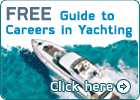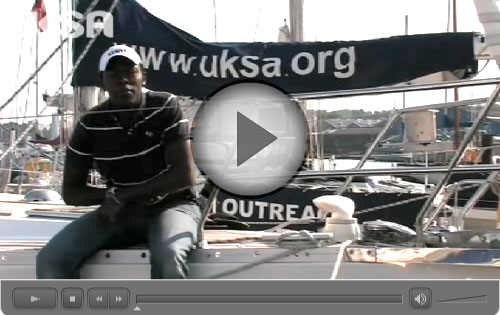Ocean Graduate
Aim
To develop professional mariners, with the qualifications, practical sailing experience and engineering skills to work as skippers of small and large ocean going sail and motor yachts.
Course overview
The programme develops and consolidates the practical sailing skills, background engineering and theoretical knowledge needed to gain the coveted RYA/MCA Yachtmaster (Ocean) certificate with commercial endorsement. STCW 95 Basic Training is included, as is preparation towards the MCA Master 200gt (Unlimited) qualification.
Pre-requisite experience:
Duration:
Qualify for:
The course includes all the mileage and training necessary, all that we ask is that you have enough boating experience to know that you want a life at sea. Motor yachting qualifications are subject to pre-requiste experience.
The Ocean Graduate course provides you with the mileage and necessary training in preparation for the RYA Day Skipper Power qualification. However, if you wish to upgrade your qualification to the RYA Coastal Skipper Powerr, you will be required to have logged an additional 200 miles and a total of 8 days at sea (including 2 days as Skipper and 12 night hours) prior to the course.
Entry for the RYA Yachtmaster Offshore Power qualification requires a minimum of 1050 miles and 21 days at sea, including 3 days as skipper and 3 passages over 60 miles (these passages must include 1 overnight and 1 as skipper), prior to the course.
23 Weeks
Command sailing yachts up to 24m, work as crew on sail and motor yachts up to 3000gt, work as engineer on sail and motor yachts (engine and mileage limitations apply)
Qualifications:
What's included:
Dates and price:
Includes all food and accommodation
Ocean passages
It’s essential to gain ocean passage making experience and qualifications in order to skipper commercially operated yachts on passages over 150 miles from port. The Ocean Graduate includes three weeks of overseas experience, during which candidates complete at least one 600-mile passage to qualify for Yachtmaster Ocean. This passage gives students the opportunity to put their yacht management skills into practice on an ocean passage, as well as taking the celestial navigation sights needed for the RYA/MCA Yachtmaster Ocean qualification.
Self skippering
To become a fully-rounded skipper, the right amount of experiential sailing, balanced with the right amount of instruction and coaching is essential. We call our experiential learning ‘self-skippering’, developing your command skills and confidence to a high degree of competency.
Practical engineering and yacht maintenance skills
The systems aboard modern yachts are increasingly technical so a crew member’s engineering skills are every bit as important as command and seamanship knowledge. This balance of skills is an essential part of our Maritime Academy ethos – we have first-rate shore-based facilities and some of the best instructors in the business. The programme will develop your skills and knowledge of all aspects of yacht maintenance, including propulsion systems, electrics and electronics, refrigeration and air conditioning, GRP repairs and rigging.
Opening the widest employment opportunities
Professional skippers holding professional-level power and sail qualifications can make swift progress in their careers aboard both sail and motor yachts. This programme includes tuition aboard our motor yacht, including twin-engine control and high-speed navigation.
Syllabus
70-days sea time, including:
- Training towards MCA Master 200gt
- Ocean voyaging
- Celestial navigation
- At least 3,000 miles of practical experience at sea
- 600 mile Yachtmaster Ocean qualifying passages
- Motor yacht tuition
- Tender handling, including RYA Powerboat Level 2 course
- Food preparation, hygiene, victualing
- Industry knowledge
Preparation for RYA/MCA Yachtmaster/Coastal Skipper practical exams, including:
- Close-quarters handling under power and sail
- Skippering and command skills
- Navigation and chart work
- Electronic navigation aids
- Pilotage by day and night
- Navigation in restricted visibility
- Meteorology
Shore based training
Yacht systems
- Pumps, water makers, refrigeration
- Heating and air conditioning
- Black and grey water systems
- Boat electrics, including generators and batteries
- GRP repair, varnishing, paintwork, anti-foul
- Rigging, rope work, winch servicing, sail repair
- Propulsion systems, stern gear, hydraulic operation, outboard motors
Navigation and electronic aids
- Transas Interactive Bridge Simulation, including Electronic Chart Display Information System (ECDIS) and Automatic Radar Plotting Aid (ARPA)
- Computer simulated radar training / on board radar navigation and collision avoidance
- Use of other navigational aids including GPS, log, depth
- Ship-to-shore communications using GMDSS compliant Long and Short Range Radio and Inmarsat C
- Ocean currents and ocean meteorology
- Use of sextant and sight reduction
Yacht management
- Industry Knowledge
- Stability and construction standards
 Industry Guidance
Industry Guidance





